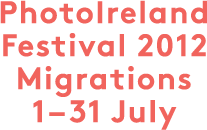IX Human Rights Film Festival of Barcelona
Posted in Migration Blog, Migration Culture Tagged Barcelona, Festival, Film, Human Rights, Spain
DHBCN2012WEB.jpg” alt=”A poster of the festival” width=”353″ height=”500″ />
The IX Human Rights Film Festival with the central in Barcelona and done also in NYC and Paris is directed by Toni Navarro and organised by the Mirada Descubierta entity, remains faithful to a dual commitment: on the one hand, to promote and open up spaces for the dissemination and screening of cinematographic works dealing with the defence of human rights; and on the other hand to increase public awareness and boost respect for the Universal Declaration of Human Rights based on the dissemination of those works.
This ninth edition is backed by an unprecedented response to the organiser’s call to participate, showing itself in nearly 3,000 audiovisual works received from all round the world.
The inaugural ceremony will take place on Thursday 17 May at 8 pm, at the new headquarters of Filmoteca de Catalunya. The ceremony will include a screening for the first time in Spain of “The Whistleblower” directed by Larysa Kondracki.
The Festival will be presenting a total of 112 films, belonging to the genres of fiction, cartoons and documentaries, 100 of them divided for the purposes of competition into two official sections: the official section of full-length/feature films and the official section of short films.
The works entered for competition will be opting for the official prizes given by the organisers, “Best Short Film” and “Best Full-Length Film“. Outside of competition, the Festival will award two honorary prizes, the “Human Rights Cinema Festival Prize“, and the “Human Rights International Journalism Prize“. For their part, the entities Amnesty International and Survival International, will be granting a further two honorary prizes.
The programme is completed with a number of parallel activities such as specialist talks by leading national and international speakers, exhibitions concerning the world of human rights, and travelling exhibitions of the Festival organised internationally.
The closing ceremony will be held on Tuesday 22 May at the Cines Girona cineman in Barcelona, where there will take place the awards of the various prizes in each official competition section, as well as of the honorary prizes.
Will be held from 17 to 22 May 2012 at the following venues:
BARCELONA
Filmoteca de Catalunya. Pl. Salvador Seguí, s/n
Cinemes Girona. C/ de Girona, 173.
Institut Francès Barcelona. C/ Moià, 8.
Museu d’Història de Catalunya. Pl. Pau Vila, 3.
Fundació Casa del Tibet. C / Rosselló, 181.
FNAC Triangle. Pl. Catalunya, 4.
Centre de Cultura de Dones Francesca Bonnemaison. Sant Pere més Baix 7.
Palau Robert. Passeig de Gràcia, 107.
NEW YORK CITY
East Harlem presents. Poet’s Den Gallery, Poet’s Den Theater 309 East 108th Street Suite 1r. New York, NY 10029.
PARIS
Cinéma la Clef, 34 Rue Daubenton, 75005 Paris







